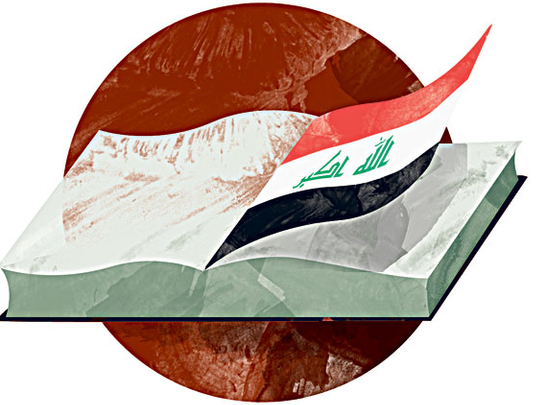
Yes, true, all true, the US combat mission in Iraq is over, after more than seven years of fighting, more than a trillion dollars spent in tax-payer money, and more than 4,000 American, and 100,000 Iraqi, deaths. The social cost, measured in the plight of two million Iraqi civilians dislocated by war, and by the animus engendered between Shiites and Sunnis, is incalculable in terms of its impact on the future of the country.
To be sure, the war there is not yet over, not by a stretch. Though America started it, now Iraqis must finish it.
So has this war been worth it, after taking into account the spiritual suffering and the wastage of human capital it has exacted from Iraqis, and the heavy cost in blood and money it has drained from Americans? And, equally relevantly, how will the contact between the ancient world of Iraq and the new world of America impact on both societies?
Will the encounter between these two civilisations, brief though it may have been in historical terms, resonate, in its diffusion and feedback, in the cultural consciousness of both?
We are still too close to the fact to answer that. As the historian Arnold Toynbee wrote in this context: "The psychological reverberations of collisions between contemporary societies do not produce their ultimate social effects until they have completed their slow journey into the individual soul".
But that the invader and the invaded in Iraq will in time be seen to have affected, and been affected by, each other is clear.
Meanwhile for Iraqis, given their plight, the war is seen as having been an unnecessary, unwarranted and unwelcome intrusion into their homeland, launched by an invader armed, along with those weapons of his that aimed to shock and awe, with a holier-than-thou message of salvation.
Tall claims
Of all the fables that in their heyday colonial powers loved to tell was that their presence in the colonies was benign and altruistic. They were there to introduce the ‘subjugated peoples' to the riches of their superior cultures.
The French were motivated by their mission civilizatrice, just as the British were guided by their notions of ‘the white man's burden'. And while the Belgians in the Congo and the Dutch in Indonesia eschewed such disengeneous justifications, they too were propelled by the general canon of European cultural, even genetic, superiority. Yet what is the difference between the modus operandi of the colonial powers in their time and that of the US in ours?
The US invaded Iraq on the false premise that its regime had weapons of mass destruction. When these phantom weapons failed to materialise, Washington changed its tune.
It's mystical goal was now to transport democracy to Iraqis, as if an alien people, with a different cultural paradigm and a different historical experience, can simply import the practice and the ethos of a new political ideology from abroad, uncrate it like a piece of machinery and set it in motion.
A war based on a false premise is morally problematic, to say the least.
And mysticism, as an instrument of diplomacy, is a view of the world that begins in mist and ends in schism.
The issue for Arabs — no less so for most Muslim nations — is their relative weakness in the global dialogue of cultures today. Conversely, the power acquired by the US, in particular since the collapse of the Soviet Union, is so great that no single rival is sufficiently strong to present a threat to it, with the end result that not just peoples in the Middle East, but elsewhere in the Third World have had, effectively, to acquiesce to American solutions. The top dog speaks, the underdog listens.
President Barack Obama wants to "turn the page" in Iraq (it's unclear whether the reference is to Bob Seger's song of the same name), and though American troops are not leaving Iraq in ruins, they are leaving it with a lot of unfinished business and a heap of monumental challenges that Iraqi leaders will have to attend to.
When one country presumes to fix another, fasten your seat belts. What America has done by its foray into an ancient land was to prove right H.L. Mencken's aphorism: "For every complex problem, there's a solution that is simple, neat and wrong".
Oh, the burdens of a big power.
Fawaz Turki is a journalist, lecturer and author based in Washington. He is the author of The Disinherited: Journal of a Palestinian Exile.









